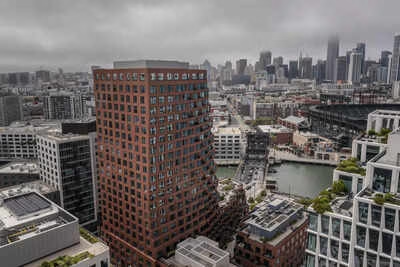Brentwood, California, a quiet Bay Area suburb of around 65,000 residents, has quietly become a crucible for America’s most punishing daily commutes. Positioned 60 miles east of San Francisco, the city draws families with its relative affordability and suburban calm, yet residents pay a steep hidden price: grueling travel to urban workplaces. Data from the 2023 US Census Bureau shows that the average commute stretches to 46 minutes each way—nearly 20 minutes longer than the national mean—forcing many to begin their days before sunrise just to arrive on time.The strain is palpable and far-reaching. For professionals, the commute is not simply lost time; it is a daily erosion of energy, focus, and opportunity. Long hours spent in traffic limit the capacity to pursue additional education, skill development, or side projects critical to career advancement. Early mornings and exhausted evenings blur work-life boundaries, leaving residents with little mental bandwidth for family, networking, or professional growth. For many, the commute is shaping career decisions as much as ambition or salary, prompting reconsideration of jobs, relocation, or even early exits from the workforce.
Affordability versus accessibility
Brentwood’s relative affordability has long been its allure. With a median home price of $800,000—roughly half the Bay Area average—the city offers respite from prohibitive urban rents. Yet this financial relief comes with a professional cost: distance from high-paying jobs. Most residents must traverse crowded highways to San Francisco, Oakland, or Silicon Valley, making daily commutes a logistical and psychological burden. The city’s lack of robust public transportation compounds the problem, leaving car-dependent workers trapped in traffic for hours each day.
The career toll of commuting
For Brentwood’s workforce, the consequences of long commutes are tangible. Productivity suffers when the day begins with two hours of driving and ends with the same. Opportunities for professional development, networking, and continued education diminish as exhausted workers retreat from extra responsibilities. Some professionals, once committed to climbing the corporate ladder, are forced to abandon positions or negotiate remote arrangements simply to reclaim time and preserve well-being. The commute has become an invisible employer, dictating not only where people live, but what careers they can sustain.
Caught in a suburban paradox
Brentwood exemplifies the modern suburban paradox: The search for affordability and quality of life collides with the demands of a competitive professional landscape. Young professionals, in particular, confront a stark choice—pay a premium to live near work, endure hours of daily travel, or risk stagnation in their careers. One software engineer’s 120-mile daily round trip underscores how soaring rents near urban workplaces are forcing workers to compromise, often at the expense of their career growth, focus, and mental health.
Limited solutions, growing exodus
Without viable public transit or highway relief, some residents contemplate relocating entirely. The commute’s pressures are no longer peripheral; they are central to life decisions, dictating job choices, relocation plans, and career trajectories. Brentwood, once seen as a suburban haven, is increasingly a cautionary tale of how modern work demands and urban-rural divides can shape professional lives.
The hidden cost of the American Dream
Brentwood’s story highlights a hard truth for ambitious professionals: The pursuit of affordable suburban living carries hidden costs that extend far beyond minutes on the road. For residents, the challenge is profound, how to reconcile career aspirations and personal development with the relentless grind of one of the nation’s longest commutes.

